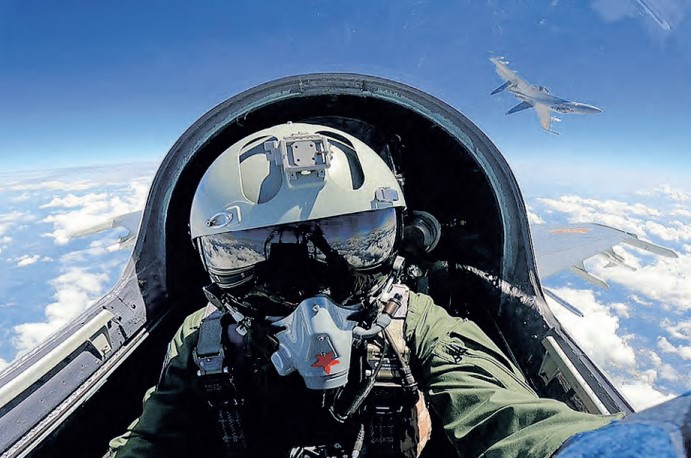

The recent decision by the US to approve new arms sales to Taiwan, which is recognised as part of China under the 1971 United Nations resolution, has sparked global concern and raised the potential for a military confrontation between Beijing and Taipei.
In a world already grappling with economic recession, climate change and ongoing conflicts in the Middle East and Ukraine, any new instability risks compounding global economic woes.
The addition of a military conflict between China and Taiwan, fuelled by US arms support, could strain economies worldwide. Washington argues that its arms supply to Taiwan supports democracy and governance, yet the policy appears contradictory; ongoing militarisation only heightens geopolitical tensions.
As China’s influence grows, challenging US hegemony, the US has taken steps to maintain its foothold in the Asia-Pacific region, with Taiwan a key trade route as a strategic asset.
Allowing reunification between Taipei and Beijing would disrupt US access to this area, something Washington appears determined to prevent.
The ongoing US provocations regarding Taiwan put a strain on international relations and economic stability.
Previous conflicts, such as those between Kyiv and Moscow, have highlighted the high cost of war on global trade and economies.
The US, while officially supporting the “One China” policy, simultaneously backs Taiwan’s defence, a balancing act that has sparked criticism.
Recent arms sales and high-profile visits by US officials to Taipei have further antagonised Beijing, undermining the 1972 Shanghai Communique’s commitment to reducing arms sales to Taiwan and respecting China’s sovereignty.
Taiwan’s role in the global semiconductor supply chain further intensifies the stakes.
Any disruption in Taiwan’s chip production could lead to severe shortages in essential products, including smartphones, medical devices and military equipment.
The Semiconductor Industry Association estimates that disruptions in Taiwan’s chip supply could result in nearly $500 billion in lost revenue for dependent industries.
A Rhodium Group report projects that a Taiwan conflict could jeopardise more than $2 trillion in global economic activity. While Washington seeks to support Taipei, excessive militarisation interferes with China’s internal matters.
As the world’s two largest economies engage in trade disputes, characterised by tariffs and sanctions, further tension over Taiwan could harm not only the US and Chinese economies but also the global market.
The strategic interests of the US and its regional allies—Japan, South Korea and the Philippines, add to this fragile dynamic, increasing the likelihood of economic fallout.
Apart from revealing how the world’s superpower repeatedly contradicts its promise and interferes into other countries’ internal affairs, the arms sale has seriously damaged China-US relations, posing a threat to regional peace and stability.
And when Taipei is pushed to have military confrontation with Beijing, it is being pushed into a peril path because its military might cannot be compared with that of Beijing and in an event of a full-blown war, Washington will not join Taiwan in fighting China because it is not a member of the North Atlantic Treaty Organization (NATO), hence it will find itself in the situation akin to Ukraine.
US as a global superpower should be leading from the front in building consensus in disputed areas rather than fuelling, which will have serious ramifications and respect international resolutions of the UN.
China’s policy of non-interference with its partners underscores the need for Washington to respect Beijing’s sovereignty.
Taiwan’s reunification is widely regarded as an internal Chinese issue, a stance the US has acknowledged multiple times. Encouraging military confrontation only worsens diplomatic relations and threatens global stability.
Rather than pursue conflict, the US and China, two economic superpowers should prioritise diplomacy and seek to reduce tensions, fostering stability for the benefit of global peace and economic security.
The world continues to face unprecedented changes, which require a collaborative approach to address the new phenomenon sweeping across the globe hence the need for the UN summit to underscore the significance of uniting in pushing for global peace and development as well as building a community with a shared future.
Some countries from the West have been hypocritical that they are championing democracy while meddling in the internal affairs of other nations causing a lot of uneasiness on the global stage.
These nations should not think that they have the barometer for all democracies in the world and that every country has to follow what it does. Sovereign countries have to follow what fits their ideals and what works for them rather than copy and pasting the western ideologies.


